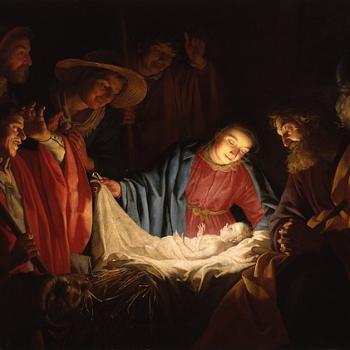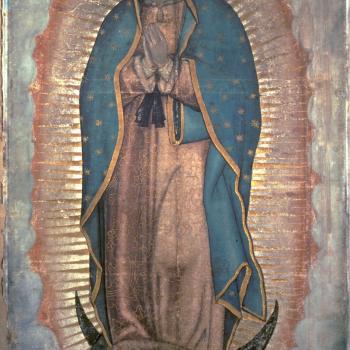Today Boston College has released the results of a report on the influence that college experiences had on young men in the United States who decided to begin studying for the priesthood. That report highlights a number of interesting points:
- Some 350,000 never-married men have "seriously" considered priesthood.
- A large number of those who entered the seminary had at least three people encourage them to do so.
- Most seminarians or new priests have had some experience in a Catholic college (compared to only 7 percent of the Catholic population who attend a Catholic college).
Read the full report here, and the new study by the Center for Applied Research in the Apostolate, on which part of the report is based, here.
The report speaks for itself, so I will not repeat all its findings here. It will be of particular interest to bishops, vocation directors, Catholic college presidents, and directors of Catholic campus ministries. What I wish to highlight here is a specific point that emerges from the report: namely, the question of the extent to which campuses promote a culture of vocations.
What is a culture of vocations? I point to two recent stories in the mainstream media that highlight examples. The first is in southern Louisiana and the second is in rural Michigan. In both places, the number of young men choosing to be priests is much higher than the national average. And while there are clearly many variables in the path of discernment to priestly life, what is clear is that it does not happen without encouragement of others. Catholic families, schools, parishes, and colleges all play a role.
The Boston College report highlights the importance of multiple sources of encouragement, which have an exponential effect on the likelihood of someone choosing a vocation within the Church (both men and women). Researcher James Cavendish pointed to sociologist Peter Berger's notion of "plausibility structures"—those networks of friends, family, and community that "help to sustain our belief and commitment to things which might in other settings seem implausible to believe." In short, they are characterized by the virtue of friendship in a shared commitment to a common mission, a common imagination about why the community exists.
Colleges tend to be diverse places, and yet they still strive to be grounded in a common mission—a sometimes explicit, sometimes more implicit architecture of what the various efforts at teaching and learning are supposed to mean. Much conversation today points to the economic impact of college; other approaches emphasize college not as primarily oriented toward wealth, but rather toward personal and social transformation. What the Boston College report points to is the importance of sustaining plausibility structures that encourage vocations to priesthood in the context of Catholic higher education. In laypersons' terms, this means building and sustaining strong networks that encourage young people at many points over their college careers to consider the question of vocation broadly, and specifically a vocation within the Church. It means that the campus experience must include encouragement of vocation not only by campus ministers, but also by professors, peers, administrators, and others.
What might such a culture of vocation look like? Primarily, it will mean the presence of people for whom the Church is an everyday part of life. To be sure, a critical mass of practicing Catholics is easier to convene in small colleges than in larger ones. Yet the example of places like Texas A&M, the University of Kansas, and George Washington University, to name a few, show that it is possible to promote these plausibility structures even in a large, pluralist environment.





